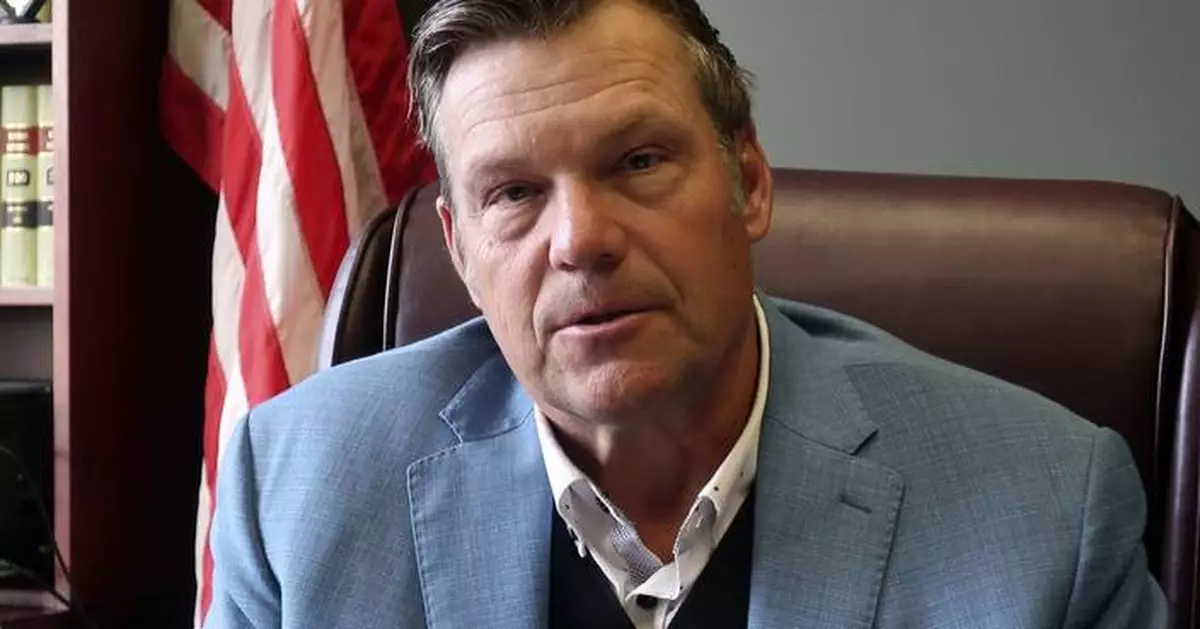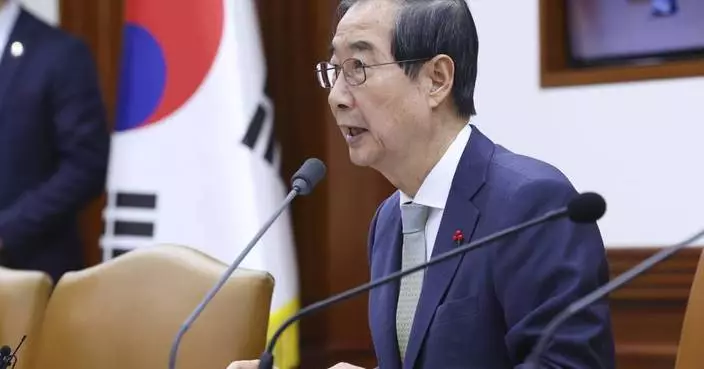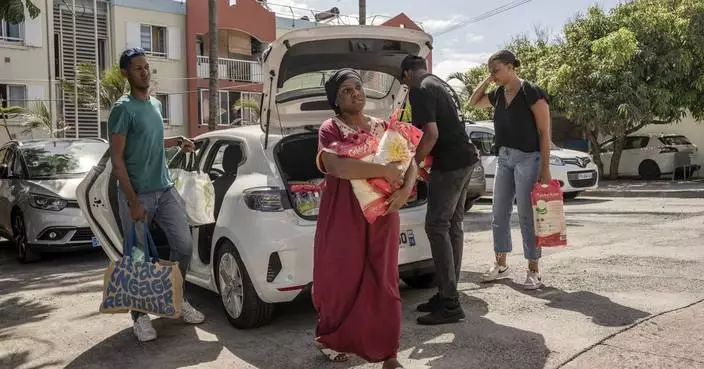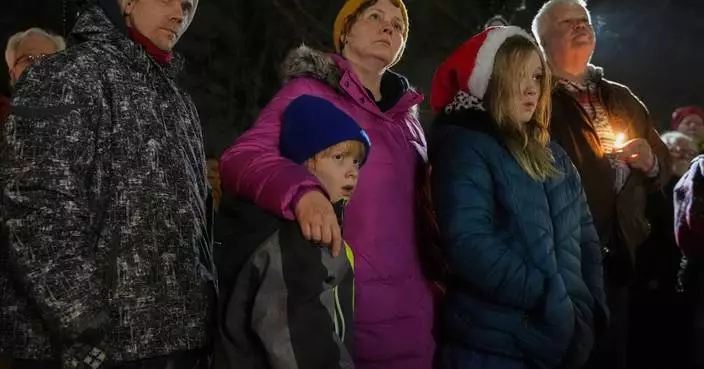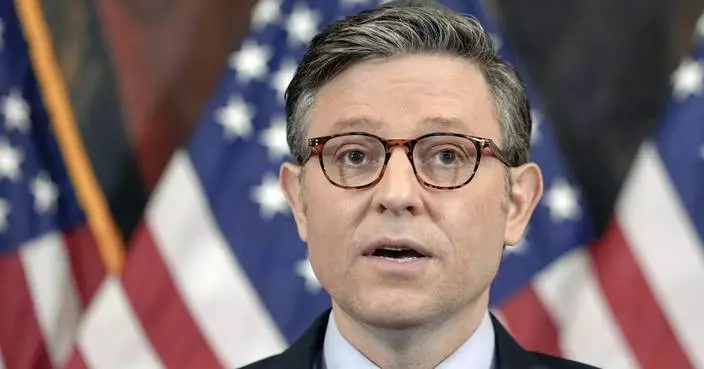TOPEKA, Kan. (AP) — A Kansas official who is an informal adviser to President-elect Donald Trump's transition team on immigration issues doesn't expect mass deportations to prompt arrests of migrants at sensitive locations such as schools and churches.
But Kansas Attorney General Kris Kobach does expect Trump to take action that will spark a legal challenge over the citizenship status of children born in the U.S. to immigrants living in the country illegally. He also expects Trump to encourage local and state law enforcement officers to help with efforts to arrest and detain migrants.
Kobach has for two decades been one of the most influential lawyers in the Republican movement to restrict illegal immigration. He is also a longtime Trump supporter who could be a key ally given federal immigration authorities' need for state and local cooperation to carry out Trump's promise of the largest deportation operation in U.S. history.
He said Wednesday that he's in regular contact with Trump's team, including Tom Homan, Trump's pick for border czar, and Stephen Miller, incoming deputy White House chief of staff for policy. He made his comments during an interview with The Associated Press. Here are excerpts:
Critics of Trump’s mass deportation plans argue that he’s promising to remove millions of immigrants from the U.S. and that’s logistically not possible. But Kobach and other Trump allies think only a portion of those migrants would have to be deported for the effort to succeed.
KOBACH: “Once there’s a massive enforcement effort going on, then a lot of people start leaving on their own.”
“You can put a multiplier on that number, and it’ll be a much greater number. They will start leaving on their own because they don’t want to get arrested. They want to leave on their own terms, and so I don’t know — we don’t know — what that multiplier number is going to be, but there will be one.”
Immigrant rights advocates worry the Trump administration will rescind a longstanding policy of avoiding arrests of migrants at sensitive locations such as schools, hospitals and houses of worship.
KOBACH: “I haven’t heard this. ... First of all, I don’t think that you are likely to see K-12 students being arrested. It’s going to be the adults that are going to be the focus of the removals."
“There are some places that are better to make an arrest than others. There are reasons why the policy of a police department is different with regard to a high-speed chase in a neighborhood versus a high-speed chase on a highway. So I think they’re probably going to have to make decisions as to which ones involve the least risk to the public.”
Birthright citizenship means that anyone born in the U.S. is a citizen, whatever the legal status of their parents. Trump has promised to end it, though others say the 14th Amendment enshrines it in the U.S. Constitution.
KOBACH: “Whatever the Trump administration does will certainly be litigated because it’s one of those hot-button issues.”
“I believe that the Trump administration has every intention of addressing this issue, in his second term.”
The Trump administration would need the help of state and local officials in its efforts to deport millions of immigrants living in the U.S. illegally.
A provision in federal immigration law allows U.S. Immigration and Customs Enforcement to make agreements with state and law enforcement agencies to deputize and train officers to arrest migrants.
KOBACH: “They can provide a force multiplier to the federal government, and I think that is the biggest and best thing that the states and counties can do to help. ... The point is, it casts a daily net.”
“I don’t see how a massive deportation program can possibly succeed without it."
President Joe Biden's administration cut the number of beds that ICE had for detaining immigrants living in the U.S. illegally. However, in August, the agency issued requests for information about the potential for new detention centers in Arizona, California, New Mexico, Oregon and Washington, documents show.
Trump could seek new contracts with counties to keep immigrants in their jails, and Kobach said he's previously worked as a lawyer for some Texas counties with bigger jails than they need for local offenders.
KOBACH: "The Trump administration, the people in the immigration sphere, are well aware of this problem, and I've talked to them."
“A few of those (Texas) counties have a really big facility, jail, and the reason it’s so big is they want to contract with other counties and with the federal government.”
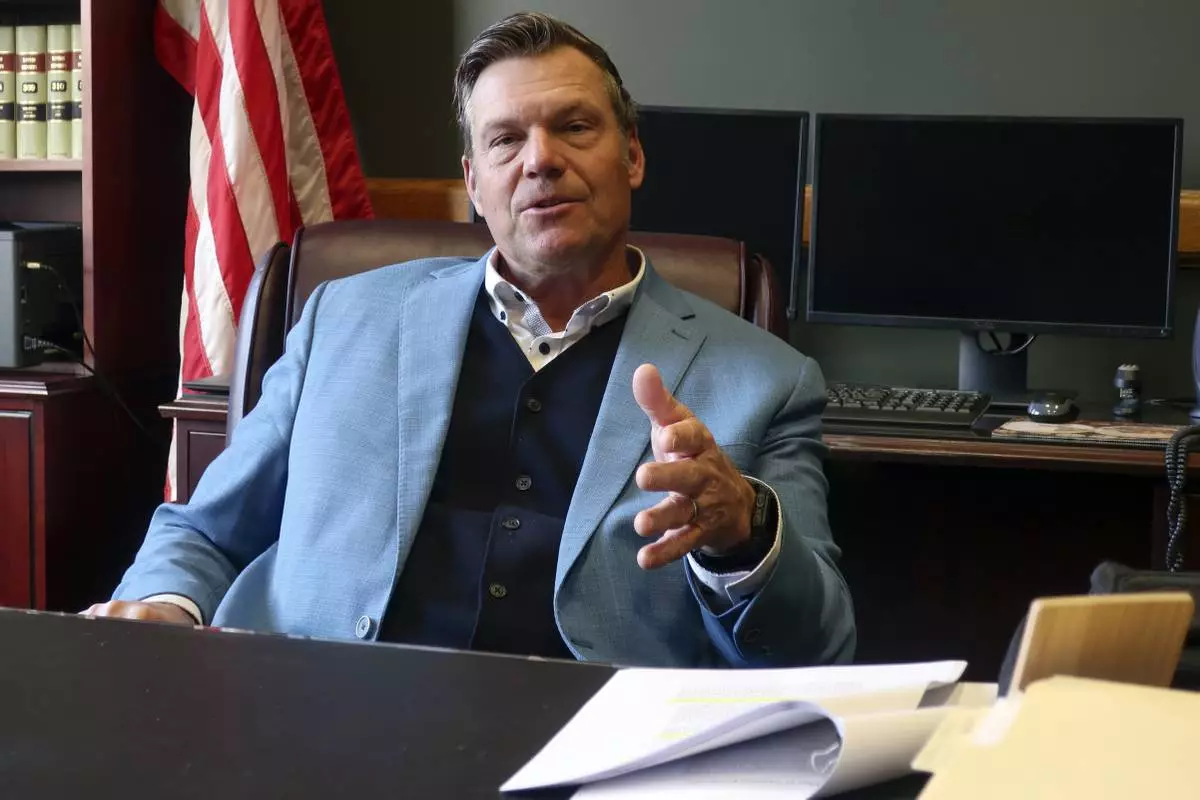
Kansas Attorney General Kris Kobach, who's informally advising President-elect Donald Trump's transition team, discusses immigration issues during an interview with The Associated Press, Wednesday, Dec. 18, 2024, in his office in Topeka, Kan. (AP Photo/John Hanna)
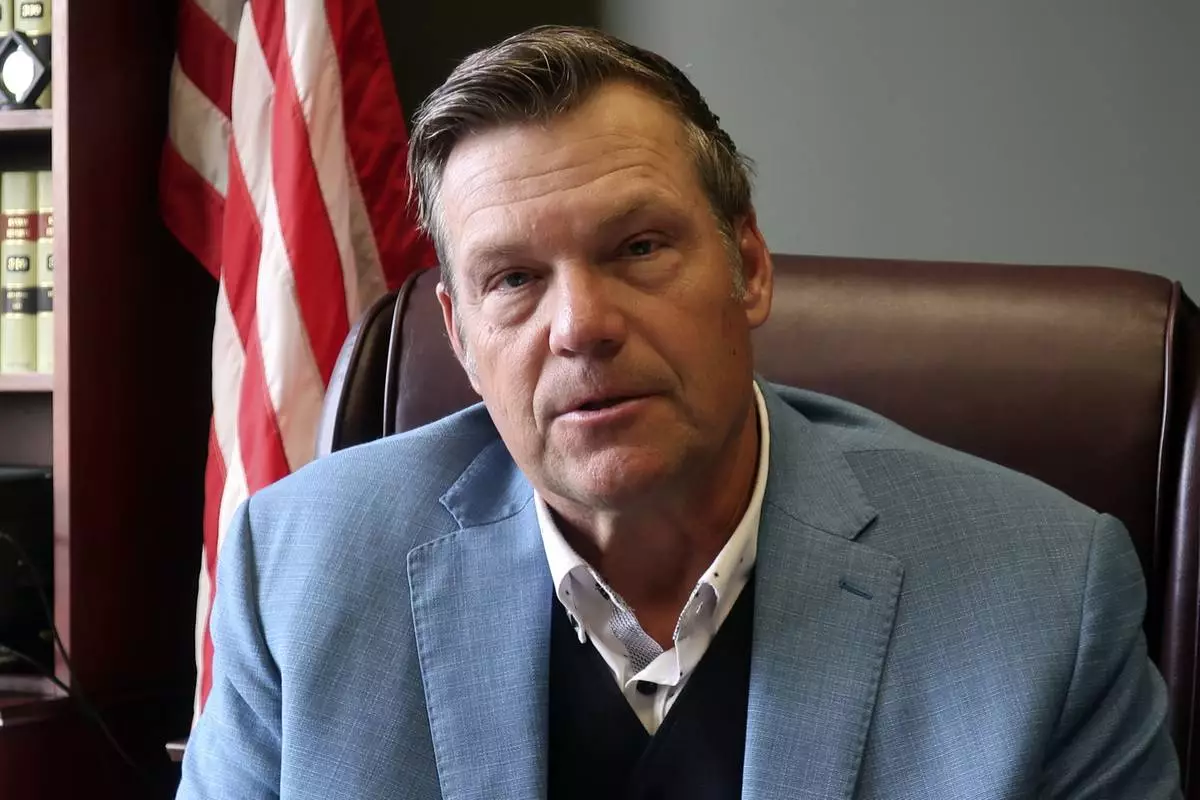
Kansas Attorney General Kris Kobach pauses during an interview with The Associated Press about how he's advising President-elect Donald Trump's transition team on immigration issues, Wednesday, Dec. 18, 2024, in his office in Topeka, Kan. (AP Photo/John Hanna)
NEW YORK (AP) — New York prosecutors are using a 9/11-era anti-terrorism law in their case against the man charged with gunning down UnitedHealthcare's CEO outside a midtown Manhattan hotel.
Luigi Mangione was indicted on charges of murder as an act of terrorism, under a state law that allows for stiffer sentences when a killing is aimed at terrifying civilians or influencing government.
If it sounds like an unusual application of a terrorism law, it’s not the first time the statute has been applied to a case that wasn't about cross-border extremism or a plot to kill masses of people.
Mangione is jailed on other charges in Pennsylvania, where he is scheduled to appear at an extradition hearing Thursday that could clear the way for him to be brought to New York.
Here are some things to know about the anti-terrorism law and the case surrounding the death of Brian Thompson.
Mangione is charged with first-degree and second-degree murder counts that specifically refer to a New York law that addresses terrorism. Essentially an add-on to existing criminal statutes, it says that an underlying offense constitutes “a crime of terrorism” if it's done “with intent to intimidate or coerce a civilian population, influence the policy of a unit of government by intimidation or coercion or affect the conduct of a unit of government by murder, assassination or kidnapping.”
If a defendant is convicted, the “crime of terrorism” designation boosts the underlying offense into a more serious sentencing category. For example, an assault normally punishable by up to 25 years in prison would carry a potential life sentence.
Mangione would face a possible life sentence if convicted.
New York does not have the death penalty. The state's highest court threw out a capital punishment law in 2004.
Manhattan District Attorney Alvin Bragg put it simply: “The intent was to sow terror." The Democratic prosecutor noted that the shooting unfolded early on a workday in a heavily trafficked business and tourist area, and he mentioned Mangione's writings, while declining to get more specific.
When arrested, the 26-year-old was carrying a handwritten letter that called health insurance companies “parasitic” and complained about corporate greed, according to a law enforcement bulletin obtained by The Associated Press.
New York Police Commissioner Jessica Tisch has said Mangione also was carrying a gun that matched shell casings at the crime scene. Investigators say ammunition found near Thompson’s body bore the words “delay,” “deny” and “depose,” mimicking a phrase some people use to decry insurers' practices.
Deputy Commissioner Rebecca Weiner said the reaction to Thompson's killing shows it fits within a law against violence designed to intimidate a civilian population.
The shooting prompted a wave of public criticism of the health insurance industry. Much of it is people sharing stories and frustration, but there also have been “wanted” posters targeting other health care honchos. Concerned companies have taken top executives' biographies offline, canceled in-person shareholder meetings and even told employees to work from home temporarily.
His New York attorney, Karen Friedman Agnifilo, called the case “overcharged” in a statement Wednesday. The term is courthouse lingo for saying that prosecutors went too far.
State lawmakers passed it in 2001, six days after the Sept. 11 attacks, saying the state needed "legislation that is specifically designed to combat the evils of terrorism" and that wasn't just for federal courts. Then-state Sen. Michael Balboni, who was among the law's leading proponents, recalls pointing out that many cases could come via state and local law enforcement officers, who far outnumbered federal agents in New York.
Many other states passed similar laws around the same time, and Congress approved the Patriot Act.
There's no comprehensive count of cases where the anti-terrorism statute was used, because it can be layered onto many different types of charges, from weapons possession to murder.
The specific first-degree murder “in furtherance of an act of terrorism” charge against Mangione has been the top count in only three other cases statewide, according to the Division of Criminal Justice Services.
In New York City alone, over a half-dozen cases of various sorts have used the terror law, starting with the 2004 indictment of a Bronx gang member. He was accused of killing a 10-year-old girl and paralyzing a man at a christening party.
Manhattan prosecutors got convictions or guilty pleas in cases including plots to bomb synagogues or open fire on their congregants; a plan to build pipe bombs to try to undermine public support for the U.S. wars in Iraq and Afghanistan; alleged efforts to recruit support for the Islamic State group and to provide money and knives to Syrian extremists; and a white supremacist who killed a Black man because of racial hatred.
Friedman Agnifilo was a top deputy to Bragg's predecessor, Cyrus Vance Jr., when some of those cases were prosecuted.
Lawmakers set the parameters broadly. The law doesn't say that cases have to involve mass casualties or international extremism, Balboni said in a telephone interview on Wednesday.
“You’re trying to prevent individuals in this country who want to change government and use extremism and violence to that end,” whether what they want to change is foreign policy or health care industry regulation, said.
Courts haven't set out overarching rules for when a case qualifies. However, the state's top court said the Bronx gang member's case did not.
The high court overturned his conviction. Justices were skeptical that the shooting — allegedly targeting a rival gang member — was meant to intimidate the broader community. They also worried that the meaning of terrorism could be trivialized if "applied loosely in situations that do not match our collective understanding of what constitutes a terrorist act.”
The man, who denied involvement in the shooting, was retried on manslaughter and other charges. He was convicted and sentenced to 50 years in prison.
Yes. The indictment includes another second-degree murder charge that doesn't have the terrorism allegation, as well as eight weapons-possession counts.
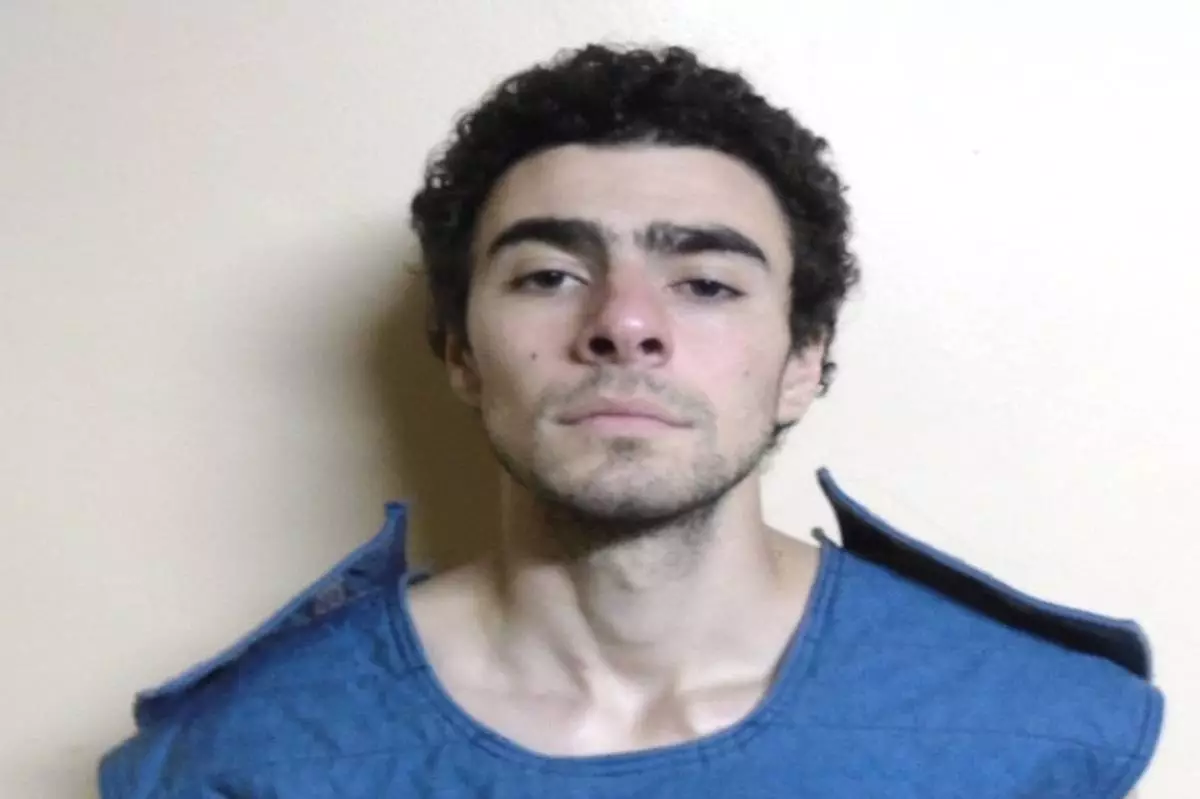
This booking photo released Monday, Dec. 9, 2024, by the Pennsylvania Department of Corrections shows Luigi Mangione, a suspect in the fatal shooting of UnitedHealthcare CEO Brian Thompson. (Pennsylvania Department of Corrections via AP)
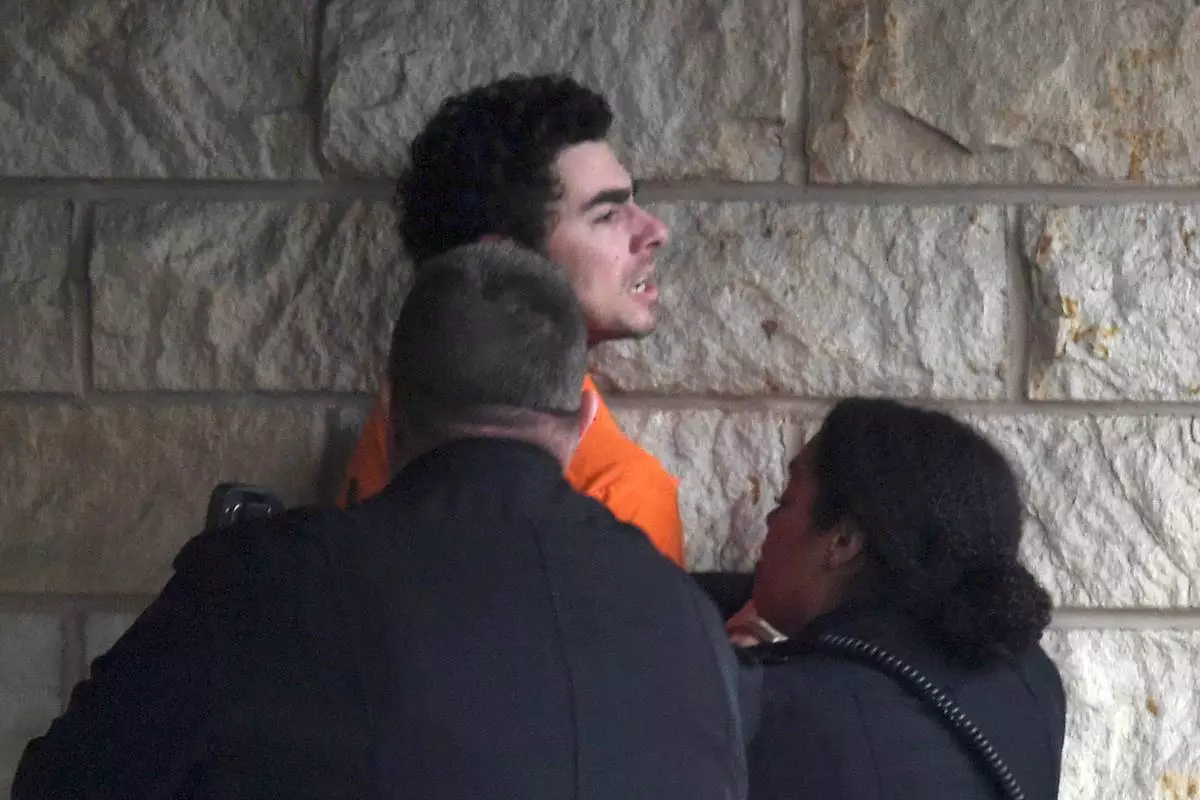
Luigi Nicholas Mangione is escorted into Blair County Courthouse, Tuesday, Dec. 10, 2024, in Hollidaysburg, Pa. (AP Photo/Gary M. Baranec)




